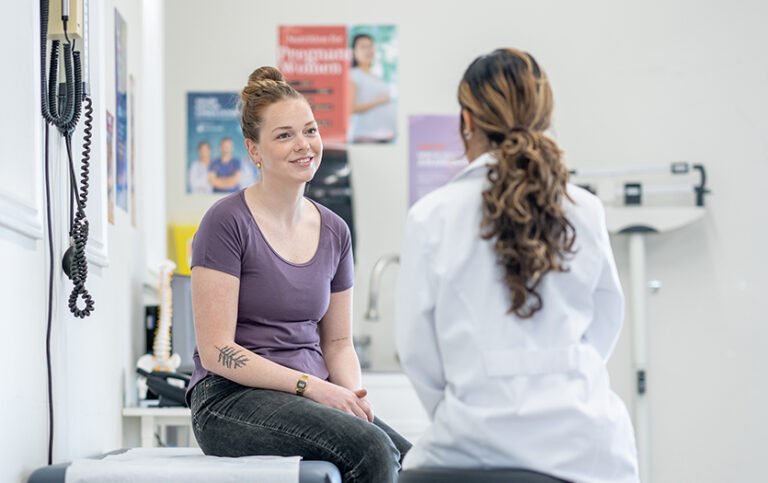
Earlier this month, we touched on the importance of Pride Month as a source of support for those in the LGBTQ+ community. (Though the actual anniversary is in June, local celebrations take place in July.) As a follow-up to that conversation, which was primarily focused on mental health, we connected with Jessica Tallis NP, PPG – Family Medicine to talk about the importance of understanding disparities regarding physical health for LGBTQ+ people.
Why is it important to acknowledge diversity and inclusion in healthcare?
Pride Month is a time to celebrate and remember the origins of the LGBTQ+ rights movement, which began with the Stonewall Riots in 1969. It’s a chance for the community to celebrate its diversity, achievements and history.
While great strides have been made regarding LGBTQ+ rights, acceptance, and visibility, it is essential to recognize that there is still much opportunity for growth and change. A key area for continued progress is meeting the specific health needs of this community. Diversity and inclusion in health care is necessary to strengthen provider-patient relationships and improve the health of this vulnerable population. Acknowledging sexual orientation and gender identity builds a foundation of trust between patients and health care providers.
What are some of the health disparities LGBTQ+ people face, and how do you address these issues?
Unfortunately, this community has historically experienced health disparities. Some members have reduced access to health care. Statistically, they are more likely to experience issues with mental health, substance abuse, eating disorders, and communicable diseases. They are also less likely to be screened for physical and mental health conditions.
This disparity is driven in large part by distrust of healthcare providers and poor provider-patient relationships. If there is no trust between the healthcare provider and the patient and the patient does not feel safe, they are less likely to speak up, report concerns, or return for future care.
Disparities may be difficult to recognize, but they are not difficult to address. Regular health screenings can identify physical and mental health concerns. “Test what you have” is a general rule to guide testing and screening of transgender people.
Are there any primary care services that are particularly important to LGBTQ+ people?
Mental health screening is crucial for this population, as being part of a minority group can make individuals feel isolated and rejected, making them more likely to “suffer in silence” and be intentionally or unintentionally traumatized by those around them.
If there are mental health concerns, it is important to refer patients to LGBTQ+ friendly therapists where appropriate. It is also essential to remember and acknowledge that patients may have had negative experiences in the medical community in the past. While we cannot change what happened, we can be intentional about working towards building positive relationships to prevent further harm.
How do you address the unique health needs of LGBTQ+ patients?
I feel that building trust is crucial to adequately addressing the unique medical needs of LGBTQ+ patients. Acknowledging and using a patient’s preferred name and pronouns is a great way to solidify that relationship early on. This creates a safe and open environment to discuss details such as sexuality, and helps determine appropriate screenings, medications, and education for the patient in addition to standard screening guidelines for cancer, heart disease, diabetes, high blood pressure, etc.
What steps do you take to ensure LGBTQ+ patients feel comfortable and respected during their appointment?
We strive to make LGBTQ+ patients feel comfortable before the conversation begins. My exam room has stickers and signs that say I’m an ally and that it’s a safe space. Our office has gender-neutral restrooms. We use inclusive language and are non-judgmental. We discuss testing options, appropriate tests, and the “why” of testing and respect our patients’ unique needs. We also provide information about resources specific to the LGBTQ+ community. We hug, we laugh, we cry.
Is there anything that hasn’t been discussed yet that you think is important for our readers to know?
Advocacy is vital for the LGBTQ+ community, and there are many ways you can show your support, connect with the community, and promote positive change.
If you’re looking for a provider and inclusion is important to you, check out “LGBTQ+ health” under “areas of interest” on your physician profile. If you need help scheduling an appointment, our Access Center is here to help. Call (877) PPG-TODAY or (877) 774-8632 for assistance.


